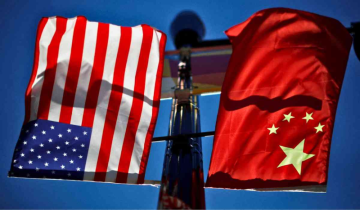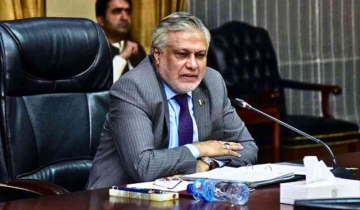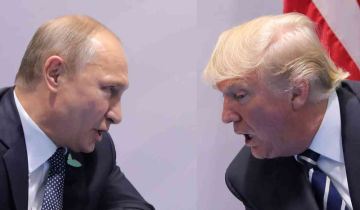In a bold move that has sent shockwaves through the political landscape, President Donald Trump declared during his inaugural address that the United States government will officially recognize only two genders: male and female. This declaration, part of a broader agenda to combat what he calls "woke culture," signals a significant shift in federal policy, particularly regarding diversity, equity, and inclusion (DEI) initiatives. As these changes unfold, the implications extend far beyond U.S. borders, raising concerns about potential ripple effects in countries like India.

The Shift in Gender Policy
Trump's administration is set to implement executive orders that not only define biological sex strictly as male or female but also aim to dismantle existing DEI programs across federal agencies. This means cutting funding for initiatives designed to promote inclusivity and equality for marginalized communities, including the LGBTQ+ population. The administration has framed these actions as a return to "biological truth," arguing that they will protect women's rights from what they perceive as the overreach of gender ideology.
The immediate impact of this policy is stark. By mandating that all federal communications use the term "sex" instead of "gender," and by prohibiting taxpayer funding for gender-transition healthcare, Trump’s orders effectively erase the existence of transgender and nonbinary identities in government systems. For many, this represents not just a bureaucratic change but a direct attack on their right to exist authentically.
Implications for Equality
The implications of Trump's policies are profound. Critics argue that these measures will exacerbate existing inequalities and discrimination against LGBTQ+ individuals. By rolling back protections established under previous administrations, Trump risks undoing years of progress made in civil rights.
Advocates for DEI argue that these programs are essential for addressing systemic discrimination based on race, gender, and sexual orientation. They fear that without such initiatives, marginalized groups will face increased barriers and hostility in various sectors, including education and employment.
Moreover, the potential psychological toll on transgender students cannot be overstated. With school records now likely to misgender students who have worked hard to align their identities with official documents, the risk of bullying and mental health issues is heightened significantly.
The rollback of supportive policies could create an environment where discrimination flourishes unchecked.
A Global Perspective: Is India in Danger?
As the United States often influences global trends, there are concerns about how Trump's policies might resonate in countries like India. India has its own complex relationship with gender identity and LGBTQ+ rights; while there have been strides towards inclusivity—such as the decriminalization of homosexuality—the rise of conservative ideologies could threaten these advancements.If American policies shift towards exclusionary practices, it is plausible that similar rhetoric could gain traction in India, where traditional views on gender remain deeply entrenched. The potential for a backlash against LGBTQ+ rights could mirror movements seen in other parts of the world where conservative governments have sought to restrict gender diversity under the guise of protecting "traditional values".

The Indian Landscape: Navigating Gender Identity and Rights
India has witnessed significant advancements in LGBTQ+ rights over the past decade, primarily through judicial interventions. Notably, the Supreme Court's 2018 ruling decriminalized homosexuality, marking a historic victory for the community. However, despite this progress, legal recognition for same-sex marriage remains elusive. In October 2023, the Supreme Court declined to legalize same-sex marriages, emphasizing that such decisions fall under the purview of Parliament rather than the judiciary. This refusal has left many advocates disheartened, as they had hoped for a more inclusive legal framework.The Transgender Persons (Protection of Rights) Act, 2019 was another step forward, granting transgender individuals the right to self-identify and seek government recognition. Yet, the implementation of this law has faced criticism for its lack of comprehensive protections and mechanisms to integrate transgender individuals into society effectively. The ongoing struggle for equality highlights a complex interplay between legal progress and societal attitudes.
Cultural Attitudes and Societal Challenges
While there is growing acceptance of LGBTQ+ individuals in urban areas—evidenced by a 2023 Pew Research Center poll showing that 53% of Indians support same-sex marriage—deep-rooted cultural attitudes persist. Many still view gender identity through a binary lens, which aligns with Trump’s recent declarations in the U.S. This cultural backdrop poses challenges for LGBTQ+ individuals who often face discrimination and violence. Reports indicate that a significant percentage of gay and bisexual men have experienced violence based on their sexual orientation.The influence of conservative ideologies in India cannot be overlooked. Political leaders often invoke traditional values to resist changes in laws regarding marriage and family structures. As Trump’s administration reinforces binary gender norms, Indian lawmakers may feel emboldened to adopt similar stances, potentially stalling progress on LGBTQ+ rights.
Potential Implications of U.S. Policies on India
The potential adoption of exclusionary policies in the U.S. could resonate in India, where political discourse is heavily influenced by American trends. If Trump's policies gain traction, there is a risk that Indian lawmakers might mirror these attitudes, further marginalizing LGBTQ+ communities. The government's reluctance to legalize same-sex marriage or recognize diverse gender identities could be exacerbated by an international climate that favors traditional gender roles.Moreover, as India grapples with its own legislative challenges regarding LGBTQ+ rights, any shift towards conservatism in the U.S. may embolden similar movements within India. This could lead to increased discrimination against not only LGBTQ+ individuals but also other marginalized groups who seek recognition and equality.

Conclusion: A Call for Vigilance
Trump's declaration that there are only two genders is more than just a policy statement; it represents a fundamental challenge to the progress made towards equality and inclusivity. As advocates prepare to fight against these changes within the U.S., it is crucial for global communities—especially those like India—to remain vigilant against similar movements that could undermine hard-won rights.The world is watching closely as this new chapter unfolds in American politics. The implications are not just about gender; they touch upon the very fabric of equality and human rights globally. In this era of uncertainty, it is essential for all individuals—regardless of their identity—to stand united against any form of discrimination or inequality.
With inputs from agencies
Image Source: Multiple agencies
*The views expressed are personal to the author and do not reflect the platform's opinion of the same.
© Copyright 2024. All Rights Reserved Powered by Vygr Media.










